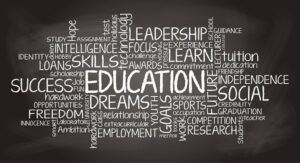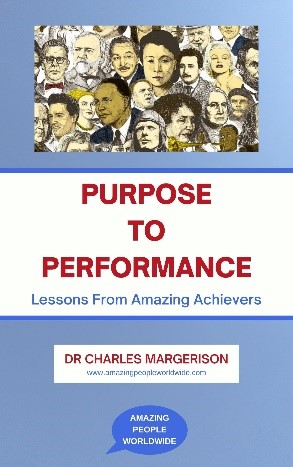By Dr Charles Margerison
Psychologist
What kind of advice should we give to young people about career choices?
What kind of experience will help a student make a choice that leads to an interesting and satisfying work life?
In my work as a psychologist, I have discussed career choices with various people. In the process, I have heard many life stories. Here are some examples of people who succeeded in their professions, but emotionally they felt this was not sufficient.

Accountant – At school, I was good at figures. It was suggested that I become an accountant. I did so, and earned a good living, but I have not enjoyed it. I am studying for a university degree in European languages, which I find more interesting.
Dentist – My father was a dentist and that influenced my career choice. I have done a good job and helped many people. However, I wish to express my interests in art, rather than just doing dental surgery each day.
Entrepreneur – I was not sure what kind of career to have. After initially working in real estate as a salesman, I bought and sold some houses myself. It enabled me to become relatively rich. I am now able to do what I feel is important and support the charitable causes in which I believe.
My conclusion from many of these interviews is that the work many people were doing did not align with their life purpose. Therefore, with colleagues, I have developed ways that students can assess their purpose, their opportunities and options.
The purpose of this short article is to identify ways in which students and young adults can find their career purpose. This is an important issue. As an example, in the UK, schools are now required by law to link education to careers, and not just to passing exams.
One way is to look at the careers of people that students might study at school, such as Einstein, Curie, Mandela, Keller, Pasteur, Tubman and others.
I have reviewed the life stories of over 500 amazing people. It is clear that all of these people had at least one major purpose in their lives. They did not see their work as a job. It was more of a vocation.
A way to help students find their purpose is to encourage them to understand the career journeys made by amazing achievers in medicine, engineering, business, science, music, architecture and other professions.
By reading how amazing people identified their unique talents and purpose, students are inspired to explore their own purpose. Our amazing people made outstanding achievements and our powerful career stories will help young people maximise their potential for their own success.
As students understand the life achievements of amazing people they can decide if that kind of work is of interest.

We encourage young learners to interview people who are doing the kind of work in which they have an interest. They can make arrangements for these interviews via family, friends or via school contacts. These interviews help students to develop valuable interactive skills and provide useful links to understanding career choices.
The value of the above approach is that students gain the opportunity to test their perception of a career against the realities. In doing so, they are able to assess if the work involved is likely to match their work preferences.
In discussion with a vet surgeon, I asked if she enjoyed her work.
‘Yes, it is a pleasure to go to work, as I am helping animals and their owners. Before qualifying, I made sure this kind of work was for me by meeting with veterinary surgeons and seeing the work they did.’
This response illustrates the importance of choosing a career based on purpose and preferences, rather than just passing examinations. It is in such discussions that students can learn from the experience of others.
Career choices will determine the direction of our lives for years. It takes three to five years to qualify in most professions, and then another five years to gain detailed work experience to start to pay off study debts.
Career education is therefore recognized as an important area. It needs to be organized in a practical way that helps students to develop their skills at the same time they are assessing their choices. Rather than letting exam results determine career decisions, we should help students understand their personal purpose and work preferences.
My research on these issues has been published in an ebook titled Purpose to Performance.




